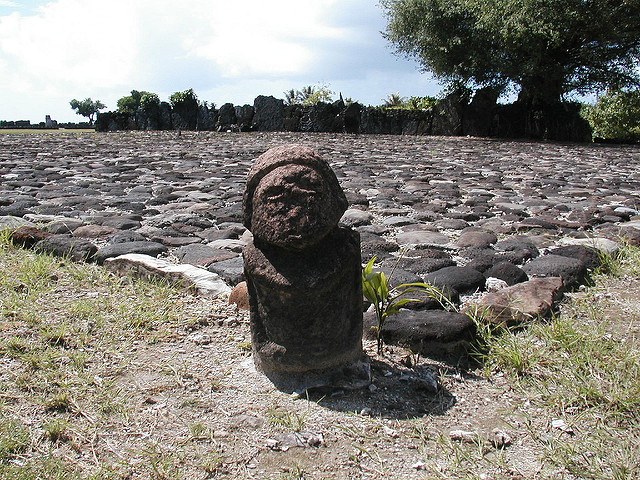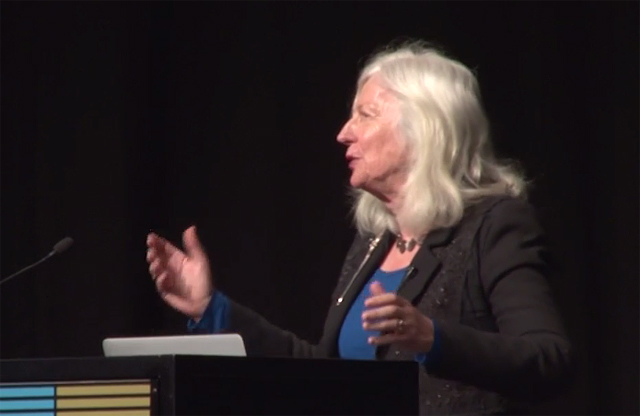On July 9, UNESCO declared an ancient religious complex of the Tahitians to be a World Heritage Site in recognition of its significance as a traditional cultural center of many Pacific societies. A New Zealand professor explained the importance of the designation for Radio New Zealand last week.

The Taputapuatea marae, located on the southeast coast of Raiatea in the Society Islands archipelago, was a sacred spot for Polynesians who believed that their gods, particularly Oro, the god of life and death, lived there. Well before the year 1000 AD, as the cult of Oro spread, Taputapuatea became the center of a Pacific religious and seafaring network. Taputapuatea means “sacrifices from afar.”
Over a thousand years ago, navigators and priests from all over the Pacific gathered in the huge complex of stones and structures to share their knowledge of ocean navigation, to speculate about the origins of the universe, and to offer sacrifices to the god. As the Polynesians established outposts across the Pacific from Hawaii to New Zealand, they built similar marae on other islands.

Dame Anne Salmond, Professor of Maori and Pacific Studies at the University of Auckland, explained the significance of Taputapuatea to Radio New Zealand. It was “one of the great voyaging sites in Polynesia,” she said, a place that is “very, very important in world history.”
She pointed out that European scholars used to dismiss the idea that Polynesian navigators could have deliberately taken voyages across the ocean, one-third of the way around the earth, long before Europeans had comparable navigating skills. The Europeans did not realize that Taputapuatea was the center of a voyaging network that stretched from Easter Island to Hawaii to the Cook Islands to New Zealand.

Taputapuatea today symbolically links the Pacific peoples together, the scholar said, from the Tahitians of Raiatea to other Polynesians and beyond. It is particularly important to contemporary navigators. Polynesian sailors go to Taputapuatea to place stones they have brought from their own islands. It remains the hub of the seafaring tradition of the Pacific.
Professor Salmond argued that the revival of interest in Pacific voyaging history has been quite important, not only for Tahiti but for the rest of Polynesia. Reviving the history of Pacific voyaging and having it recognized as a critical component of human history through the UNESCO designation “is very powerful for Polynesian people,” she concluded.